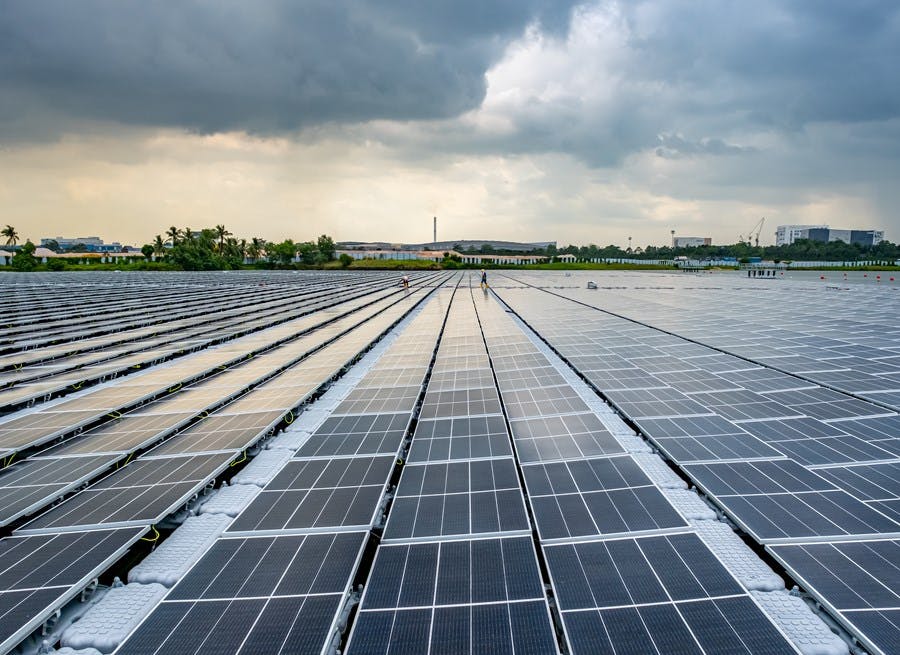Green Hydrogen Catalogue

As part of our commitment to achieving 24/7 carbon-free energy for all, the Green Hydrogen Catalogue is now released to the 24/7 CFE Compact. The initiative was started to expand the use of green hydrogen technologies in energy production.
Green Hydrogen Positioned as Key Energy Solution at COP28

On 6 December 2023, Sustainable Energy for All (SEforALL) announced the release of the Green Hydrogen Catalogue to the 24/7 Carbon-Free Energy (CFE) Compact at the SDG7 Pavilion at COP28 held in the United Arab Emirates. The session showcased the integration of the Green Hydrogen Catalogue into the 24/7 CFE Compact, and discussed the key role of policies and regulatory frameworks that enable the adoption and integration of green hydrogen into energy systems.


What is the Green Hydrogen Catalogue?
The Green Hydrogen Catalogue provides a platform for collaboration between governments, international organizations, and private sector companies involved in the green hydrogen value chain to take action towards achieving carbon-free energy for all.
By promoting dialogue and action around the use of green hydrogen, the Green Hydrogen Catalogue incentivizes its partners to commit to ambitious Energy Commitments.
From financing and production of renewable energy to production of green hydrogen - the Green Hydrogen Catalogue can provide a unique analysis of the current landscape of green hydrogen by collecting and showcasing these commitments.
Through showcasing the action being taken by stakeholders across the value chain, the Green Hydrogen Catalogue is able to see how much renewable energy and electrolyzer capacity is being collectively committed by the catalogue.
This inspires further commitments and action, with more than 150 Energy Commitments now registered worldwide. Collectively these commitments make up the Green Hydrogen Catalogue.

Why does the Green Hydrogen Catalogue exist?
Green hydrogen is a key solution to decarbonize hard-to-abate sectors and accelerate the transition to a net zero society.
The use of hydrogen to produce power is increasing due to the global energy crisis. Historically hydrogen has been produced by fossil-fuel intensive processes known as grey hydrogen, which currently accounts for 2% of global CO2 emissions.
Decarbonizing hydrogen to create green hydrogen plays a crucial role in achieving 24/7 carbon-free energy. Green Hydrogen is created through a process of electrolysis, separating the hydrogen from the oxygen in water using renewable energy. According to the International Energy Agency, this process could save 830 million tonnes of CO2 being emitted annually from grey hydrogen.
By acting as a long-term and large-scale energy storage solution, green hydrogen can release energy when renewable sources are not available - ensuring a continuous, uninterrupted energy supply.
The recent landmark legislation enacted by the European Commission, which introduces a highly detailed framework for the production and deployment of green hydrogen, is instrumental in optimising the use of green hydrogen by aligning its production with fluctuations in renewable energy generation, enabling a reliable source of carbon-free power around the clock.

Why do Energy Commitments matter?
Energy Commitments have specific targets and timelines to drive progress on Sustainable Development Goal 7 - to accelerate action for clean, affordable energy for all.
More than 150 energy commitments have already been registered across the world.
Their progress is tracked and supported by UN-Energy, who provide technical expertise and facilitate partnerships through the Energy Commitment Action Network.
These commitments also contribute to Nationally Determined Contributions under the Paris Agreement and achievement of the broader 2030 Agenda and SDGs.
- 6
- 27
- 6
- 20+
- 150+
- 283,800
- 133,700
partner countries
partner companies
knowledge partners
energy compacts
energy commitments
total MW renewable energy committed
total MW electrolyzer capacity committed
Join the Green Hydrogen Catalogue
Be part of a global community, connected by one goal: creating a future where all electricity consumption worldwide is served by carbon-free energy sources.
Delivering Truly Clean Hydrogen with 24/7 CFE
When it comes to clean hydrogen, a robust body of research consistently identifies a strong emissions accounting system for grid-connected electrolysis that espouses three pillars: additionally, deliverability, and hourly matching. These three principles are considered necessary to guard against substantial emissions increases and drive the deployment of truly low or zero emitting hydrogen projects. How important are the three pillars for managing emissions? How can they be applied in practice? Can hydrogen projects that satisfy the three pillars be cost competitive? Find out the answers from leading experts from the recorded webinar below.
Who is the Green Hydrogen Catalogue?
The Catalogue
Haldor Topsøe
Iberdrola
Soladvent
Fortescue Future Industries
Green Fuels for Denmark
BPP
RWE
EDP
Avangrid
Copenhagen Infrastructure Partners
Electrochaea
Green Hydrogen Catapult
Tata Power
Founding Partners
Chile
Germany
European Commission
Republic of Namibia
Colombia
The Basque Region
Knowledge Partners
World Economic Forum
Energy Compact
SDG 7 - affordable and clean energy
United Nations
High Level Dialogue on Energy
IRENA (International Renewable Energy Agency)
Race To Zero Breakthroughs Hydrogen
Financial Partners
Global Environment Facility
BloombergNEF

How the Green Hydrogen Catalogue began
Ahead of the UN High Level Dialogue in Energy in September 2021 the United Nations invited countries, cities, private sector companies, philanthropists, civil society, and other stakeholders to submit Energy Commitments.
These are voluntary commitments that contribute to Sustainable Development Goal 7: achieving affordable, reliable, sustainable and modern energy for all. This inspired the continuation of these commitments and the creation of the Green Hydrogen Catalogue - focusing on the green hydrogen value chain.

















